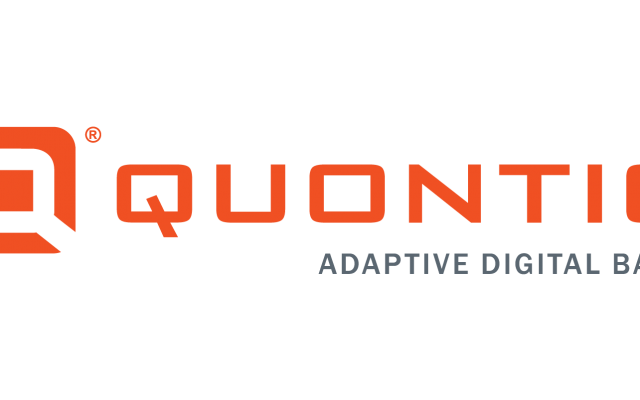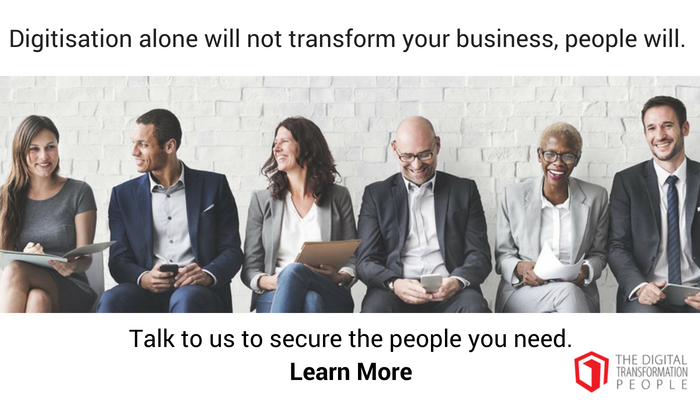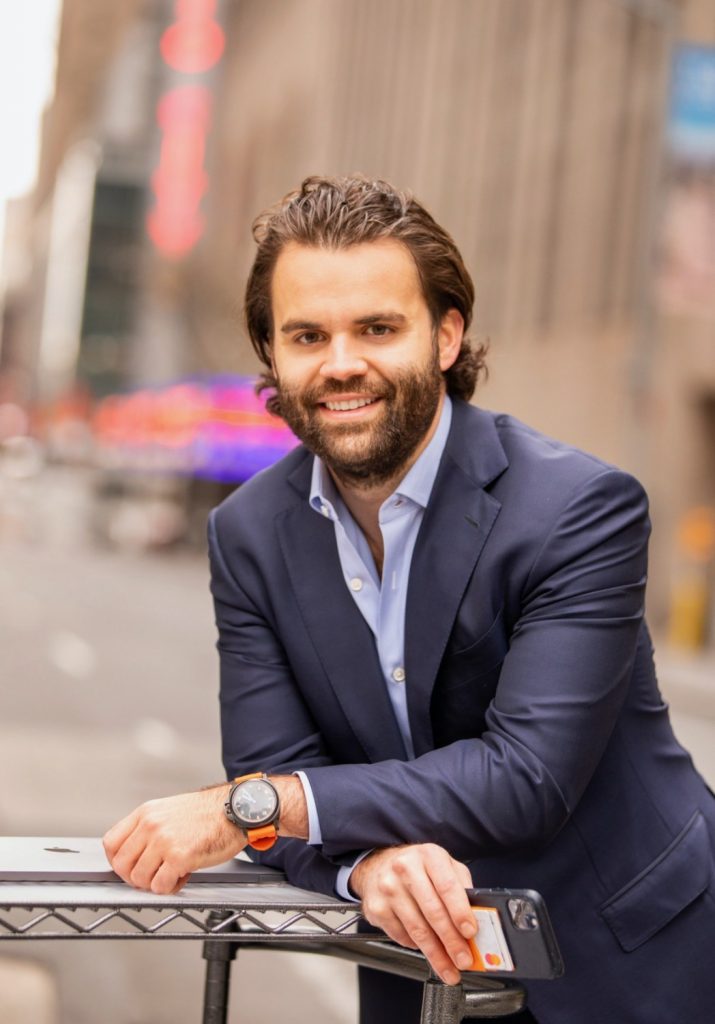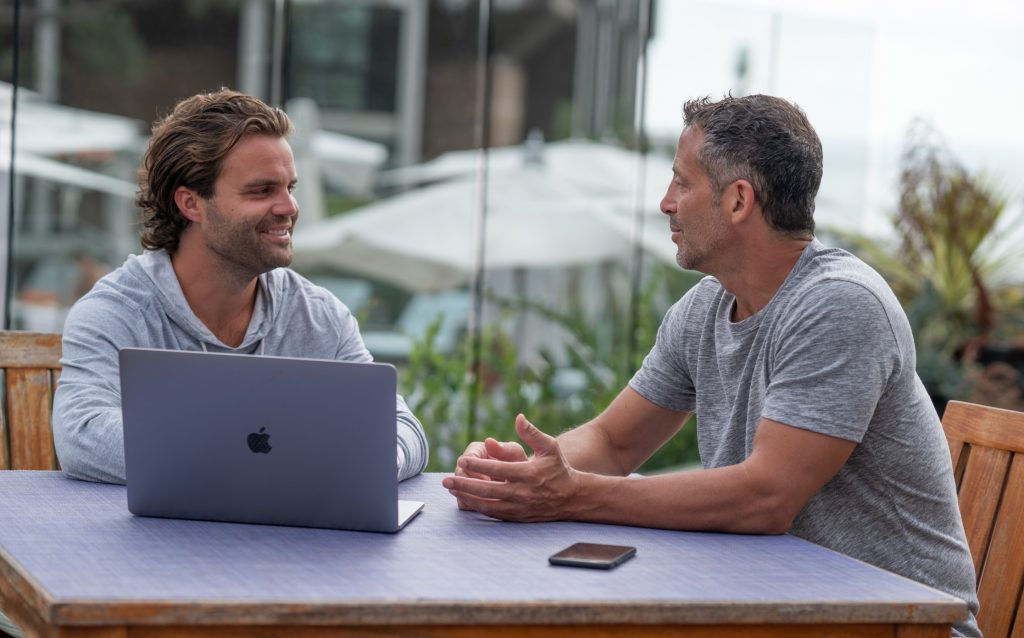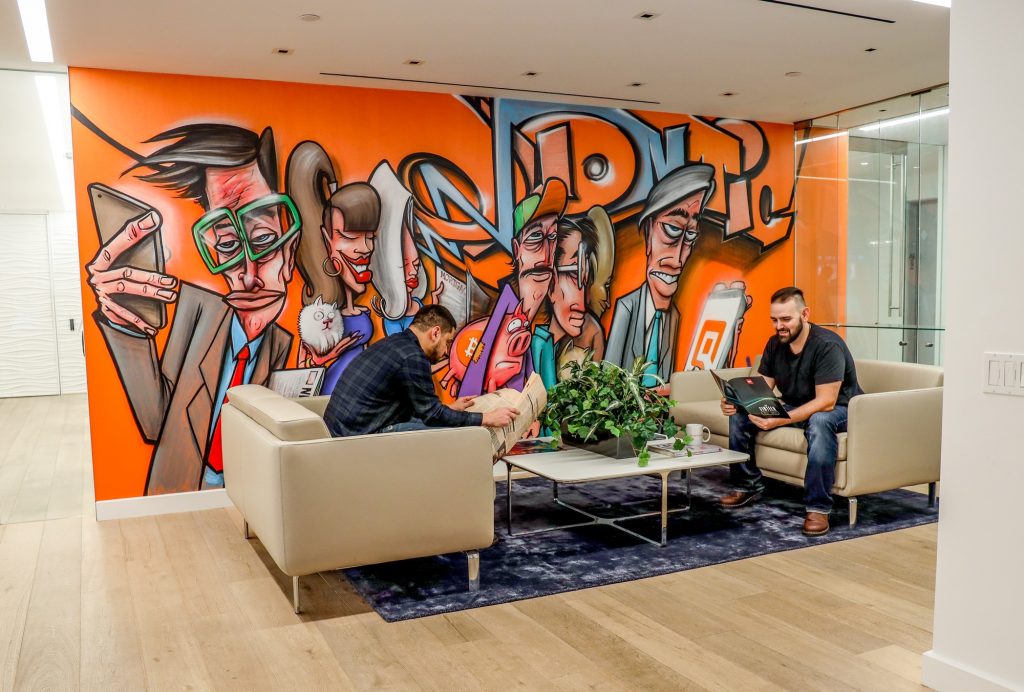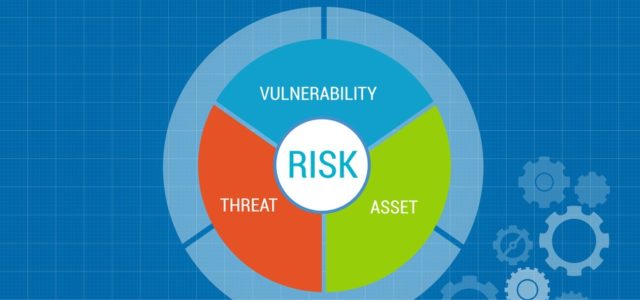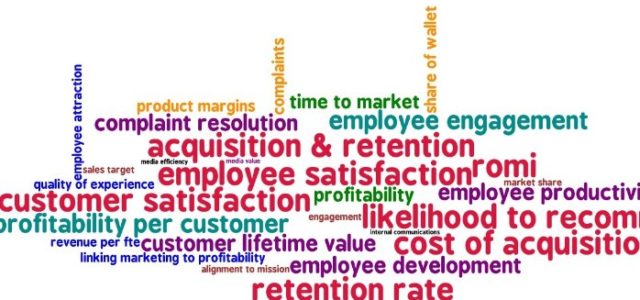In this series of interviews on the impact of Culture on Digital Transformation, I’ve had occasion to interview a broad cross-section of organizations in the Financial Services sector. That shouldn’t come as a surprise as the industry – from Schedule A banks to Insurers to feisty FinTech innovators – is under increasing market and consumer pressure to accelerate their digital utility and reduce the bureaucracy and complexity that has plagued Financial Services for decades. This pressure is giving rise to a new kind of bank – and a new kind of banker – as the opportunity to reframe how customers are served rapidly unfolds. Quontic, the adaptive digital bank, is an excellent example of this new breed of a digital, community bank. I caught up with Quontic’s Chief Innovation Officer Patrick Sells who, despite telling me he was a late-comer to the world of Finance and Banking, has already managed to snag the prestigious “Digital Banker of the Year Award” from American Banker.
HB: Patrick, always good to chat with you. I was looking at the Quontic website ahead of this call and was immediately struck by the phrase “break the system for financial empowerment” which is a really ballsy point-of-view for a bank. Can you give me some more context around that?
PS: <Laughs> Absolutely Hilton. I’ve been at Quontic for about 18 months ,but I had worked with the organization and the CEO Steve (Schnall) previously when I was running my own digital marketing consultancy. At one stage Quontic was facing a real crossroads and having to determine whether to expand into creating more physical branches or double-down and become a truly digital bank. Steve and I spent an intense weekend working through all of the possible permutations before deciding that becoming a truly digital bank was where we both saw a real gap in the market.
Importantly neither of us were content with being “just another digital bank” and we wanted something more aspirational and more provocative which lead us to that mission which, if you read off our website, is really quite unique.
Quontic’s mission to break the system for financial empowerment stands in the face of big banks and proves there is a better and more equitable way to put the customer first.
The bank focuses on truly understanding and serving the underdogs, entrepreneurs, gig-economy workers, immigrants, and more with a curated banking experience as opposed to a one-size-fits-all banking approach.
Right out of the gate, we wanted to have a very strong perspective of who we were going to be and who we were going to serve.
HB: Well there’s certainly no ambiguity in that statement. Why has it been so important for Quontic to be so direct, maybe even provocative?
PS: As we looked across the (US) banking system we were struck by how little innovation had really happened to the core banking proposition in the last 50 years. Banking remains, by-and-large, a one-size-fits-all service delivery. Now that may be okay for some, but we felt that increasingly there were large groups of people who were being inadequately serviced – or even just plain ignored – by the current system. We saw that as an opportunity. An opportunity to service those ignored groups but also to attract a group of employees who saw what a community bank could, and should, be and wanted to be part of that journey with us. Our mission needed to be bold enough to attract those (ignored) customers, but also folks who may not have traditionally considered a bank as a place for them.
Banks used to play an absolutely vibrant role in the development of American communities and society. It was prestigious and banks genuinely helped businesses come to life in this country. They helped communities to be formed and we asked ourselves, “what’s happened to all of that?” That vibrancy, that impact, has been lost over the last few decades to where no young person graduates college and goes, “I’m going to go work at a community bank.” Young people don’t think of a bank as really that vibrant, exciting or enabling anymore. So at Quontic we’re trying to come back to what working at a community bank used to mean. How do you go back to what banks were originally and become that vibrant place again?
HB: Are you talking about Purpose, that term coined by Simon Sinek, here or something else?
PS: I wouldn’t use the word Purpose.
It’s about having a clear sense of your identity, what makes you truly unique and different. Then being crystal clear with each and every person you employ about how you’re going to deliver that at each and every opportunity.
For Quontic, that means three things. The first one is innovative deposits. Essentially these are a set of products you won’t find anywhere else in the Banking world. We’re currently exploring some truly unique programs that, for example, could reward you in Bitcoin or one that helps you reduce your carbon footprint to zero. Back to the mission – if it’s not breaking the system or empowering you then we’re not going to create it. The second anchor is maximum leverage which equates to ensuring that we get the very best out of every asset we have, be that our technology, to make us more automated and better wherever possible, or our people, who we want to empower and enrich to bring their best ideas to the Bank every day. The third, and this has caused waves for us, is adaptive lending where we deliberately look to a space where other banks don’t go or wouldn’t look to build a book of business in. A simple example is our mortgage products which lend to low-income immigrants, gig economy workers and people who wouldn’t ordinarily be able to secure a mortgage. Again, back to breaking the system and financial empowering the underdogs. That’s part of our identity and everything we do needs to authentically reflect that.
HB: So, talk to me about how this idea of identity plays into your relentless ambition to innovate inside banking and, in particular, how is that borne out in the Quontic culture?
PS: This is something that (CEO) Steven Schnall and I have discussed time and time again.
I think the innovation word has been dangerously misused and for many it has become synonymous with technology, which is a miss. Innovation is either at the heart of what makes you unique or it’s not.
Innovation quite simply is doing things differently and that, like what we’re trying to create at Quontic, comes down to what it is that needs to be different – in our case how Banks, Bankers and Banking operate in the US today – and how you’re going to do that successfully and over a sustained period of time.
Quontic CEO Steven Schnall (r) and Chief Innovation Officer Patrick Sells (l)
That idea always brought me back to trying to define the identity of Quontic, what makes us different (or why we want to be different) and how our people make that a reality versus just something we talk about. For a while I’ve struggled with this idea that seems quite prevalent in business circles that business exists only to pump profit for shareholders and Executives. That is so one-dimensional and flawed. It’s like saying that you Hilton, as a human being, merely exist to pump blood. That’s your sole reason for existing and sole activity to focus on.
Of course, that’s complete insanity. You’re more than a “pumper of blood” and businesses, especially Banks, need to be more than a “pumper of profit”. Firstly, because there’s so much more to business than that and secondly because no-one wakes up in the morning and rushes into a place just to help “pump profits”. And if they do, they’re probably not the type of people we want helping us build Quontic.
HB: Okay I get the idea that having this different, unique identity can set you apart in what you build and who you serve. Talk to me about the culture piece and how your people factor into this idea.
PS: The people part is absolutely critical. That may sound like a cliché, but a vital part of me joining Quontic is the recognition that our identity, and our ability to succeed only happens if it’s authentically part of everything we do. For an organization as young as we are, we have this fantastic opportunity to get the culture part right from the very beginning. And that’s what we set out to do.
We deliberately took a very grassroots non-scientific approach. We asked our colleagues!
We got together in small groups very organically and asked ourselves a series of quite basic, but very important questions.
“What behaviours do we think people will need to have to help Quontic succeed in its mission?”,
“Which of our colleagues do we most adore and wish we could work with more often?”
and “What is it about those people we like that we wish you could replicate and amplify?”
Quite basic questions but it drove some very illuminating and interesting conversations. And it made for an interesting list of people from across the company that, based on job function or title, you might have scratched your head. However, it did crystalize a number of our core values which, interestingly, came through time and again when we dove into why our colleagues had chosen the people they did.
Progress Not Perfection quickly rose to the top. That’s become an important one for making decisions but also when we evaluate projects that didn’t go as well as we’d wanted. Failure remains one of the hardest things for a company to get comfortable with but it’s entirely unreasonable to expect zero misses – especially when you’re trying to break the system. The next one is the idea of Try It On. We want to be quick to embrace and try things and get feedback as to what is actually working. Just as important, we don’t want to spend endless hours in meetings mindlessly debating things. Internally we use this basic analogy. If you were at a department store and you’re looking at a shirt, you’re not going to get your phone out and make a “pros and cons” list for 20 minutes before trying it on. Here’s a real example I face all the time and probably accelerated by the Digital Banker of the Year Award. Senior executives from other FI’s will call to discuss all their plans for the “digital millennial banking customer” and they stop short when I tell them the average age of my customers is 58. While they’re likely having endless meetings about designing the perfect product for the perfect customer and worrying about Amazon or Google becoming a Bank, Quontic is out there “trying it on” and discovering all sorts of great and unexpected things. That value creates a real impetus for action which is why we’re fond of it.
The third value is Say Cheese which really comes from that very human insight that when somebody pulls out a camera and says, “say cheese” most people light up, put on a smile and generally change their mood. This value is a recognition that we’re doing tough and difficult things and that there are going to be many stressful and crappy days. But, if we can operate with a mentality of “say cheese” when we’re in those stressful moments with colleagues or, especially with clients, then we can go a long way to diffusing the stress and focus on tackling the problem. The last one is Know the Goal. Again, for a relatively young company, this is crucial. There are so many things we could do it’s really a case of knowing and remembering what we must do.
That’s important because it focuses our energies and our creativity on the stuff that matters right now. Having that clear mission statement is so important because whenever we get into a debate we can look at that and say, “is this breaking the system?” and is this “financially empowering?”
That’s why a value like knowing the goal is so important to rally behind.
Honestly there are very few meetings where a team member doesn’t speak up and echo one of the core values. Often that’s me. It’s a way of reinforcing the values and reminding each other how we’ve chosen to act and make decisions here. <Laughs> Truthfully there have been times I’ve considered changing my title to CRO or Chief Reminder Officer.
HB: That’s great context – and a great new title for Culture Officers I think. Do you think you have an advantage because you’re so young as an organization? The “founders” of Quontic are still walking the halls where other banks are over 100 years old and that connection to the identity of the bank has been lost in the archives. Does that give you a cultural advantage?
PS: I love this question. Not to sound like a broken record but it really goes back to the idea of genuinely finding the identity of your business. The identity of a business cannot – or shouldn’t – ever be solely reliant on the founder because we know when it’s the founder, it doesn’t tend to last very long beyond the founder’s presence in the building, right. There are millions of case studies that point to needing to imbue something that can last beyond the influence of the founder. That’s when you’ve really captured the magic. The analogy where I found helpful in thinking about this was the notion of religion. How do religions live on for centuries and centuries? It’s because they’ve codified a means by which they live and operate. There’s a means by which decisions are analyzed, there’s a set of understood values and a common language that they’ve created which bring people together.
So whether your company is a one-year-old startup, 10 years old with the founder actively involved, or 150 years old and needs to rediscover your culture, you need to take a long hard look at the people that are there and ask, “Are we still aligned to the goal and how we’re going to get there?” For us when we created the mission and associated values we very quickly saw that 80% or so of our people were all in. The 20% who were on the fence or not aligned quickly saw that we were totally committed to our mission, our identity and those set of values. Some changed but, more importantly, some left – and that was okay for us and for them. They were quickly replaced by 20%, who absolutely ate, breathed and slept this way of living and this way of thinking. Unfortunately, when you’re a bigger company, you may find that there’s only 60% of your staff that are all in. But the same rules apply. What’s your identity, what and how are you going to get there, and do you have the courage to get rid of those who are muddying the water or just aren’t bought in? In our experience, if you’re crystal clear, as we’ve attempted to be in everything we’ve shared about our ambitions and our values, then making these decisions become way easier for both parties. It’s when you’re unclear or indecisive that the problems begin.
HB: Skeptics reading this will nod and say this stuff is easy to say but harder to do. Is there a time in Quontic’s history that you’ve had to double-down on this way of thinking?
PS: Absolutely and in hindsight, it was the first really significant moment around the value of progress not perfection.
In classic digital bank fashion when we first started Quontic we were obsessed with creating a brilliantly slick mobile application. We vetted several companies and started down the path. Two years of incredibly hard work and countless hours and dollars invested, we had a moment where we looked at the project and said this just isn’t getting us where we need to go. Back to that value of “know the goal” and being able to say it’s just not working. That was an incredibly hard conversation to have internally because the team had really put their heart into it, but it wasn’t getting us to where we needed to. This was an idea that I personally had championed and now I was pulling the plug and resetting our expectations. But we could do it with way less agony and circular discussions because of those values we discussed earlier. And we ended up promoting and giving the Team Leader a bonus even though we shut the project down. For us, that reflected our commitment to “progress not perfection” and promoting the Team Leader was 100% the right decision against that core value.
Here’s the thing, for all the academic debates about culture, it really comes down to the ability to make faster and better decisions. And having values you commit to 100% removes so much stress, animosity and confusion from the day-to-day work. Who wouldn’t want that?
If you don’t see these as significant advantages in running any business, then I don’t know what will convince you.
HB: An eloquent point passionately made mate. I always ask my interviewees for any advice they’d give their peers – in Banking or beyond – that are facing the same culture or innovation challenges you are. What would you tell them?
PS: Absolutely and some are very much driven by the reality of working in the Banking sector. Firstly, embrace the restrictions. Banking has tons of rules and regulations and if you’d asked my friends and family if they thought I’d be able to thrive creatively in that environment they’d say you were nuts. Reality is those restrictions, and every single business has them in some way or another, can be the most liberating and creative part of your role. Finding opportunity in, or despite of, those restrictions can be some of the most rewarding things you can create as a leader. So, embrace the restrictions.
The others really come back to my deeply held conviction around identity. You have to be authentic and be intentional with yourself and with your people. Inauthentic and uncommitted leaders are easy to spot a mile away and you’re fooling no one if you’re one of those. That means having some reverence for what you’re trying to create and taking that responsibility, for other people, their careers, their families, their futures very, very seriously. Lastly, stop waiting for that perfect situation to get started on this stuff. There is no perfect timing, certainly not right now in the world, but you have to start somewhere and you have to start sometime. Why not right now? What are you waiting for?
HB: Brilliant. Some fantastic advice mate. Always appreciate your time and your passion for this topic.
PS: My pleasure. Take care, Hilton and we’ll chat soon.
Article by channel:
Everything you need to know about Digital Transformation
The best articles, news and events direct to your inbox


